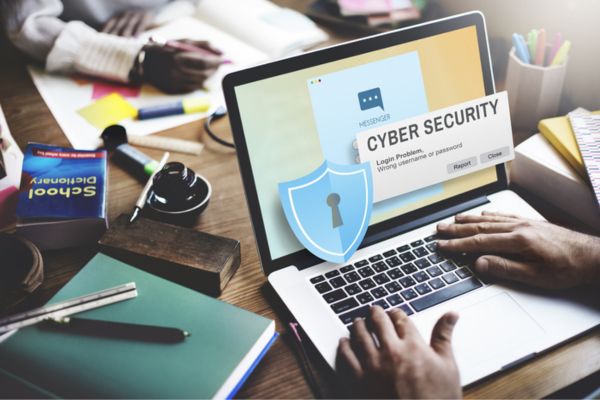Trend Micro, a global cybersecurity leader, released its highly anticipated Annual Roundup Report for 2023, offering deep insights into the evolving cybersecurity landscape globally, with a special focus on India. The report presents a comprehensive analysis of cyber threats, trends, and vulnerabilities, empowering businesses with actionable intelligence to fortify their digital defenses.
In addition to India-specific insights, the report offers a global perspective, highlighting record-high threat blockages in 2023 and the shifting dynamics of cyberattacks across industries. Trend Micro blocked 161 billion threats overall in 2023, compared to 82 billion threats five years ago. Some other key global highlights include:
- Email malware detection surged by 349% year-on-year.
- Business email compromise (BEC) detections increased by 16% year-on-year.
- Threat actors use sophisticated tactics like Living-Off-The-Land Binaries and zero-day exploits to evade detection.
- Thailand and the US were the top two ransomware victim countries, with banking as the most affected sector.
- The Zero Day Initiative discovered and responsibly disclosed 1914 zero-days with Adobe leading in vulnerability reporting, emphasizing critical vulnerabilities in PDFs.
- Threat actors persist in using legitimate tools like Mimikatz and Cobalt Strike for criminal activities
In a year marked by unprecedented challenges and rapid digitalization, the cybersecurity landscape witnessed significant shifts, and India emerged as a crucial battleground in the fight against cyber threats. Here’s a closer look at the key findings from Trend Micro’s Annual Roundup Report 2023 for India:
- India remains the 5th most targeted country globally for ransomware attacks, ranking 4th in Asia and 1st in Southern Asia, despite a global decrease of 18%. Impressively, there has been a significant 49% reduction in ransomware attacks in India compared to 2022, indicating enhanced resilience against this persistent threat.
- India, positioned 4th in the Asia region for email threats, exhibited a notable 52% reduction in email threats from the previous year, underscoring enhancements in email security protocols.
- Emerging as a global leader in malware detection, the country secures the 3rd position worldwide, 2nd in Asia, and leads in Southern Asia. Despite a modest 6% decline in malware detection from the previous year, India remains at the forefront of mitigation efforts.
- Particularly noteworthy is the banking sector, which faces significant risks from malware, ranking 4th worldwide and 3rd in Asia. While experiencing a 35% decrease in banking malware detection compared to the previous year, this sector continues to be a prime target for cybercriminals. *
This could indicate that threat actors are choosing their targets more carefully. Instead of launching attacks on a wider range of users and relying on victims clicking on malicious links in websites and emails, they’re targeting a smaller number of higher-profile victims with more sophisticated attacks. This might enable them to bypass early detection layers like network and email filters—which could explain the surge in malicious file detections at endpoints.
Commenting on the report’s findings, Sharda Tickoo, Director Sales, Large Enterprise and Technical Leader -Trend Micro, India & SAARC, said, “Our report illuminates the battlefield of cyber threats, offering businesses the strategic insights needed to armor their digital fortresses. Though decreasing malware incidents show progress, we can’t ignore the relentless evolution of the threat landscape. With the ever-evolving nature of the industry, particularly due to heightened application of generative AI, adopting proactive threat detection, deploying a unified cybersecurity strategy — which essentially shifts to a platform-based approach rather than relying on scattered, point-based solutions — and increasing awareness are key.
Trend Micro remains committed to empowering organizations and individuals with cutting-edge cybersecurity solutions, safeguarding against evolving threats in today’s digital world and advises security leaders to:
- Conduct training to equip end users with the knowledge to identify and avoid accessing risky websites and links; human negligence remains the weakest link in cybersecurity.
- Work with trusted security vendors with a cybersecurity platform approach to ensure resources are not only secured but also continuously monitored for new vulnerabilities.
- Prioritize SOC efficiency by monitoring cloud applications carefully as they become more closely integrated into day-to-day operations.
- Ensure all the latest patches/upgrades are applied to operating systems and applications.
- Utilize comprehensive security protocols to safeguard against vulnerabilities, tighten configuration settings, control application access, and enhance account and device security. Look to detect ransomware attacks earlier in the attack lifecycle by shifting left in defenses during initial access, lateral movement, or data exfiltration stages.
- Exercise diligence in monitoring cloud applications accessed by their networks, especially as more organizations integrate cloud environments in their operations.
- Shift to a platform based approach and consider adoption a unified cybersecurity platform than deploying scattered point based solutions.















